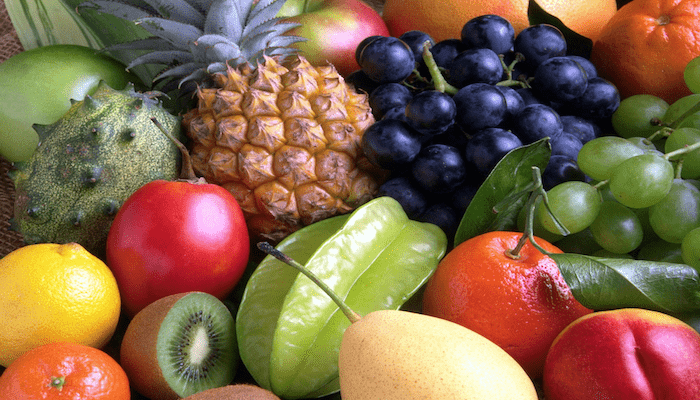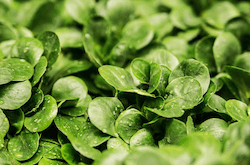
Studies have shown that diet alone does not play a major role in the cause or treatment of acne. However, when it comes to acne preventative care it is recommended that what is best for your body is best for your skin, especially considering that your skin is the largest organ of your body. Below are the A, B, C, E, L and Z of acne nutrition tips related to healthy vitamins, minerals and other supplements that are recommended and known to help prevent and eliminate acne breakouts:
Acne Nutrition Tip 1
 Retinol, one of the animal forms of vitamin A, is found not only in some cosmetic creams but also in liver, fish oils and dairy products. Produced by plants, this vitamin is also known as Beta-carotene or pro-vitamin A, and is found in yellowish-orange fruits and vegetable; yams, cantaloupe, carrots apricots, and in green vegetables like spinach, kale and parsley. When it comes to nutrition this vitamin plays an essential role in vision, particularly night vision, normal bone and tooth development, reproduction, and the health of skin and mucous membranes.
Retinol, one of the animal forms of vitamin A, is found not only in some cosmetic creams but also in liver, fish oils and dairy products. Produced by plants, this vitamin is also known as Beta-carotene or pro-vitamin A, and is found in yellowish-orange fruits and vegetable; yams, cantaloupe, carrots apricots, and in green vegetables like spinach, kale and parsley. When it comes to nutrition this vitamin plays an essential role in vision, particularly night vision, normal bone and tooth development, reproduction, and the health of skin and mucous membranes.
Acne Nutrition Tip 2
 Vitamin B Complex, a group of water-soluble vitamins, are found in leafy vegetables, fish, milk, eggs and whole grains and have many functions. Although vitamin B-2 can irritate acne, it’s also known to help alleviate stress, as do vitamins B-1, B-6 and B-12.
Vitamin B Complex, a group of water-soluble vitamins, are found in leafy vegetables, fish, milk, eggs and whole grains and have many functions. Although vitamin B-2 can irritate acne, it’s also known to help alleviate stress, as do vitamins B-1, B-6 and B-12.
Stress relief has been shown to reduce acne. Another B vitamin, B-3, is found in avocados, eggs, peanuts, lean meat and liver, and has reportedly been shown to reduces cholesterol level. This vitamin also has an anti-inflammatory effect on the skin, improves your metabolism and circulation; all of which may benefit acne reduction.
Acne Nutrition Tip 3
Ascorbic acid, also known as vitamin C, has antioxidant and anti-inflammatory properties that help penetrate skin and prevent the return of acne. Most notably known for the prevention of scurvy, vitamin C has been studied for years in its ability to repair damaged scar tissue.
Acne Nutrition Tip 4
Vitamin E refers to a group of eight fat-soluble compounds found mainly in almonds, broccoli, peanuts, sunflower seeds, wheat germ and vegetable oils. Vitamin E has been said to help with scar tissue healing, has many biological functions, of which the antioxidant function is the most important and/or best known. Researchers consider tocotrienol (referred to as high potency E or HPE) as having the most antioxidant properties that may be able to aid the skin when ingested.
Acne Nutrition Tip 5
Although carnitine is not a proper vitamin, its biologically active form is L-carnitine, a supplement that is reported to help repair skin damage from acne for young and old. The highest concentrations of carnitine are found in red meat and dairy products.
Acne Nutrition Tip 6
 Zinc (found in eggs, mushrooms, nuts and whole grains) and selenium (a trace mineral in most soils and absorbed my a variety of vegetables) are known to improve the overall health of the body, including the skin.
Zinc (found in eggs, mushrooms, nuts and whole grains) and selenium (a trace mineral in most soils and absorbed my a variety of vegetables) are known to improve the overall health of the body, including the skin.
Studies have shown that a lack of zinc can contribute to acne. Although selenium is an essential trace element, it is toxic if taken in excess.
Summary of Acne Nutrition Tips
When natural dietary absorption of these vitamins is not possible, high quality multi-vitamins help supplement the recommended daily allowance, which may help with acne prevention. Combined with plenty of fluids, water specifically throughout the day, these acne nutrition tips will provide a healthy dietary intake.








I love reading a post that will make people think.
Also, many thanks for allowing for me to comment!
No problem. Thanks for commenting and thinking ;o) ’cause not enough people are doing enough good thinking these days!